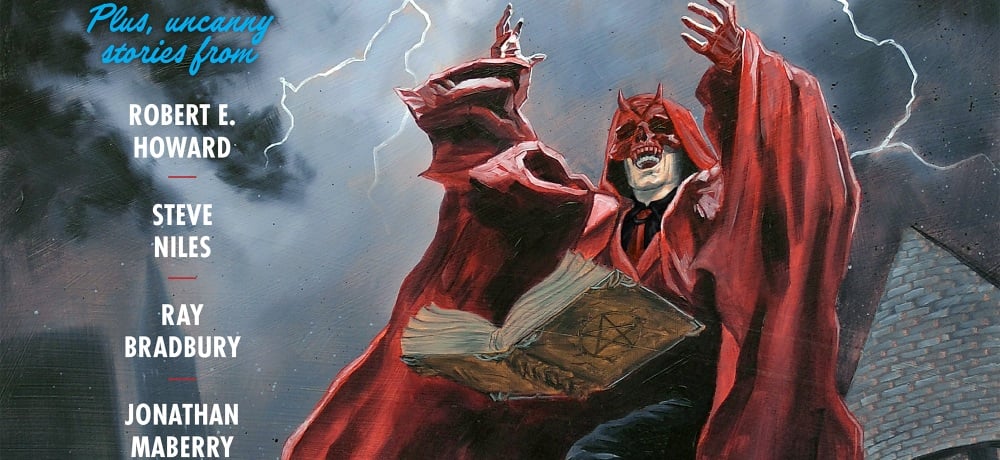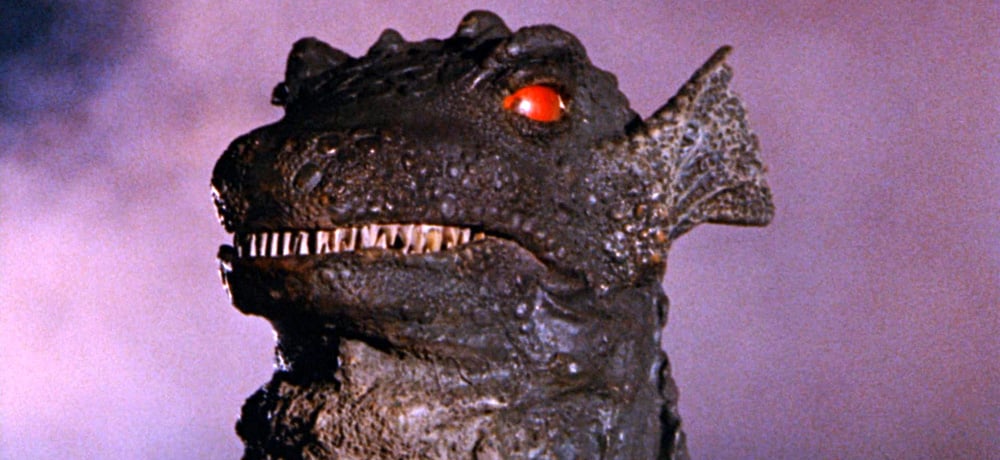






Like so many of my fellow fantastical fans, I’m at a point where I’m just looking for something to help forget the horrors of the real world, even for 90 minutes; a film where plot is jettisoned in favor of mass destruction, and character development merrily skips alongside the other forgotten tenets of basic storytelling. I’m happy to say I found my fella; Gorgo (1961) is a British film that extensively rips off Godzilla and King Kong in a successful quest to grease my eyeballs with goofy goodness. And it does it in 78 minutes, to boot.
And this is coming from someone who has yet to glom onto Godzilla’s oversized charms and Japanese destruction in any kind of constructive way; I understand the legacy and even the appeal of the series, but can’t pry myself inside. But after viewing Gorgo, I have a greater appreciation for why people find Godzilla effective.
You more or less know this story: A couple of ship salvagers, Joe and Sam (Bill Travers and William Sylvester), are looking for sunken treasure off a small Irish island only to find that something is killing all the divers in the area. After getting a look at a 60 foot dinosaur-like creature (our title boy!), Joe and Sam tell the locals that they’ll catch him as long as they can keep him; when they do, instead of taking it to Dublin for exhibition, they make a detour to London and sell Gorgo to a traveling circus.
Soon Gorgo is a huge success, bringing people from all over the world to gawk at the monster. However, it’s soon discovered that Gorgo is just a baby, and mom is on her way, none too happy…
So yes, the film should really be called Gorgo’s Mom since she does all the destruction in the second half, stomping through Piccadilly Circus and smashing every known monument along the way. And the beastie exhibition angle is lifted right from Kong. Not to mention that this thing is a straight up sausage fest. Or that it could use that Harryhausen touch.
None of this matters, because Gorgo is 78 minutes of smiles and comfort in the way it baldly uses tropes to fulfill a contract in the viewer’s mind: just give me the good stuff, please.
And so Gorgo does just that, stripping away inconveniences like plot and characters, when strong and stoic will do (I’m not sure who these he-men are being stoic for, as there isn’t even a potential suitor anywhere to be found). As for exposition, that’s handled quite humorously by “on the street” reporters giving a play by play of Mamasita’s Revenge as she storms London – I mean, she’s 200 feet tall; I’m sure everyone can make out what she’s up to.
Even though I’m not necessarily an ambassador for the Godzilla films, there is something oddly comforting about watching a giant creature go to town; it’s cathartic to see destruction on the screen, feeding any negative energies back through the tube in an effort to quell our own demons.
The same can be said for all horror; we’re looking for a release, and today it may come from a hero or it may come from a villain. The Gorgo clan fits in to Column A I believe; what mother wouldn’t go on a rampage looking for her son? Besides, our salvagers are clearly only in it for the money, making it pretty easy to choose sides.
And it really is as simple as that; screenwriters Robert L. Richards (Winchester ’73) and Daniel James (The Giant Behemoth) afford no more to the characters than needed. By the second half, they’re just passive bystanders like the rest of us – even though their greed causes the dominoes to tumble in the first place. (To be fair to mama, I’m sure she would have found her son no matter where they kept him.)
Hey, I’m glad these folks are drawn paper thin; there’s no worrying about ulterior motives or logic ripples when the waters are so calm, at least for me. I can sit back and take in the mauled and masticated model buildings of the London landscape.
And a lovely sight it is too; director Eugene Lourie helmed The Beast from 20,000 Fathoms (1953) and The Giant Behemoth (’59) before this, and he knows his way around this kind of mayhem, especially from a production designer’s point of view, which is where he started out. Cinematography is handled by Freddie Young, a Brit who had already shot dozens of films before this, and would go on to shoot Lawrence of Arabia and Doctor Zhivago shortly after this. (He won a total of three Academy Awards for Cinematography.) Gorgo has a leg up on similarly cash strapped productions: it’s pretty good looking, even when the effects belie that belief.
But frankly, the miniature work, rear projection, et al work as well in Gorgo as they do in most any other film from the era; at the end of the day, it’s a guy in a zipped up rubber monster costume, and should be paid the due reverence.
Because at the end of the day, isn’t all horror just a guy in a monster suit? No matter the subject, when ‘cut’ is yelled, the suit comes off. Gorgo makes no pretense about social or political statements; the suit goes on, comes off, and everyone returns to their safe environment. Right now, this is the kind of horror I require; one that asks me to come along on a make believe rampage through a city for 78 minutes and just smile. Sometimes that’s enough.
Gorgo is available on Blu-ray from VCI Video.
Next: Drive-In Dust Offs: THE MAZE (1953)